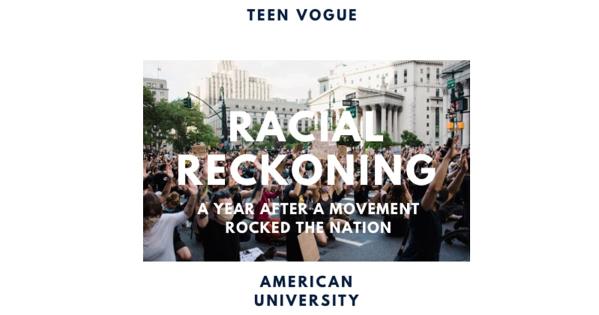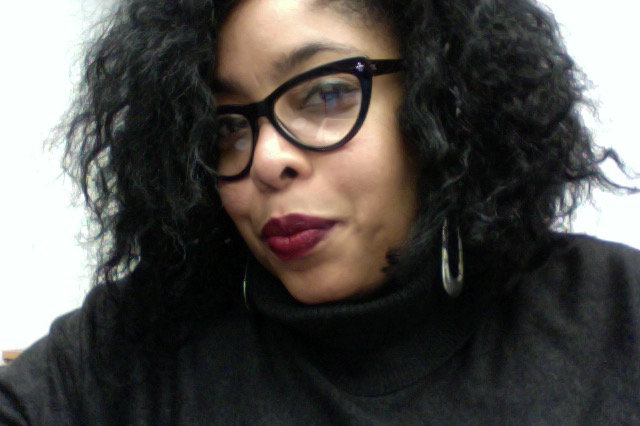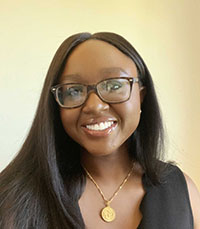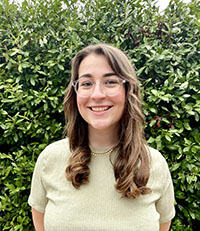Journalism Class Partners with Teen Vogue to Document 2020 Racial Reckoning

As the first anniversary of the 2020 racial justice uprising approaches, American University School of Communication (AU SOC) journalism students offer insightful reporting about their peers’ reckoning with race through a journalism project published by Teen Vogue.
The project, Racial Reckoning: A Year After a Movement Rocked the Nation, is five stories produced by students in Dr. Sherri Williams’ spring 2021 COMM 588 Race, Ethnic and Community Reporting class. The series launches May 24, almost a year after a white police officer killed George Floyd and ignited a national racial justice movement.
The project is intended to have emerging journalists document history through the lens of their generation and have the stories amplified by Teen Vogue, a national media outlet that prioritizes racial and social justice reporting, Williams said.
 “This is the first anniversary of this nation’s latest Black liberation movement sparked by anti-Black violence and it’s the 100th anniversary of the historic massacre of Black people in Tulsa,” Williams said. “Race is still one of the nation’s biggest problems and underreported stories. Teaching emerging journalists to produce thoughtful reporting about race can help us understand the consequences of internal and institutional racism and show us how we can dismantle it.”
“This is the first anniversary of this nation’s latest Black liberation movement sparked by anti-Black violence and it’s the 100th anniversary of the historic massacre of Black people in Tulsa,” Williams said. “Race is still one of the nation’s biggest problems and underreported stories. Teaching emerging journalists to produce thoughtful reporting about race can help us understand the consequences of internal and institutional racism and show us how we can dismantle it.”
The project was a natural collaboration with the Conde Nast magazine because the inclusive journalism that Williams teaches mirrors the journalism Teen Vogue produces, said Allegra Kirkland, senior politics editor at Teen Vogue.
"We were proud to partner with Dr. Williams’ class for this important series commemorating one of the largest social justice movements in history,” Kirkland said. “The stories her talented students put together are so relevant to Teen Vogue’s mission to uplift and amplify the experiences of young people, many of whom were on the frontlines of these protests."
Kirkland was a virtual guest speaker in the class early in the spring and students pitched story ideas to her for the project based on the beat they covered during the semester. McKenzie Beard, Dezimey Kum, Zeina Mohammed, Tobi Raji, and Zoe Watkins are contributing writers to the project.
 Tobi Raji, a 2021 alumna of the journalism and public affairs master’s program, wrote about how mainstream media and movements overlook violence against Black women.
Tobi Raji, a 2021 alumna of the journalism and public affairs master’s program, wrote about how mainstream media and movements overlook violence against Black women.
“I want our stories to be as inclusive as possible,” said Raji, 26. “I just don't want us to forget about Black women…It’s not an attack on Black men. It’s not really their fault. It’s society’s fault as a whole because it’s inherently patriarchal. It’s just a reminder that Black women matter too.”
McKenzie Beard, a 2021 graduate of the undergraduate journalism program, wrote about growing support to remove police from schools. Beard wanted to show that worries about a heavy police presen ce and excessive use of force go beyond neighborhoods where students of color live — those are also concerns in their schools.
ce and excessive use of force go beyond neighborhoods where students of color live — those are also concerns in their schools.
“They're not only being over-policed in the classroom, but the police presence affects their actual ability to learn,” said Beard, 21, who is entering the journalism and public affairs master’s program at AU this fall. “This isn’t contained to our neighborhood boundaries at all.”
Last year Williams partnered with The Nation, which published presidential election stories that students in her race and reporting class produced for the Vision 2020: Election Stories from the Next Generation project. Williams was also the co-director of the 2018 award-winning Black on Campus national student journalism project published by The Nation in which Black student journalists documented racism on college campuses. That project was the subject of a Journalism & Mass Communication Educator article.
Raji said the graduate-level race and reporting course helped her develop her narrative and news writing skills to tell powerful stories to a national audience.
“What I was given was...a chance to have a seat at the table because of this class,” she said. “Because of the skills that I worked on, I was able to actually sit down at that table. So I’m excited to see my article published by Teen Vogue and I’m excited for what this professionally means for my career in the future.”
Beard said the race and reporting class and writing for Teen Vogue taught her to think about stories, sources, and the audience in a deeper way than she had before the course.
“I started thinking about my credibility as a reporter,” she said. “I wanted it to be that the credibility of the piece stems from the lived experiences of those interviewed for the story. These sources look, sound and care about a lot of the same things as Teen Vogue readers.”